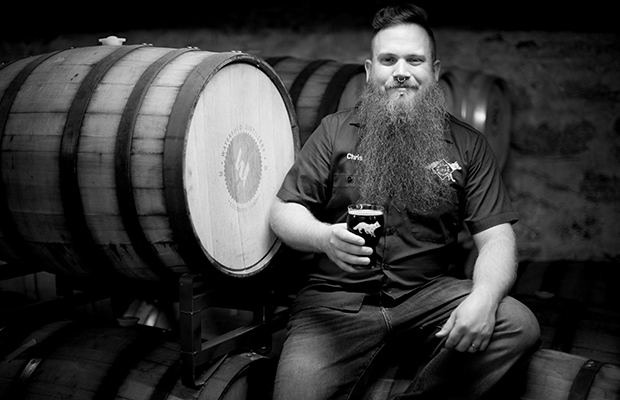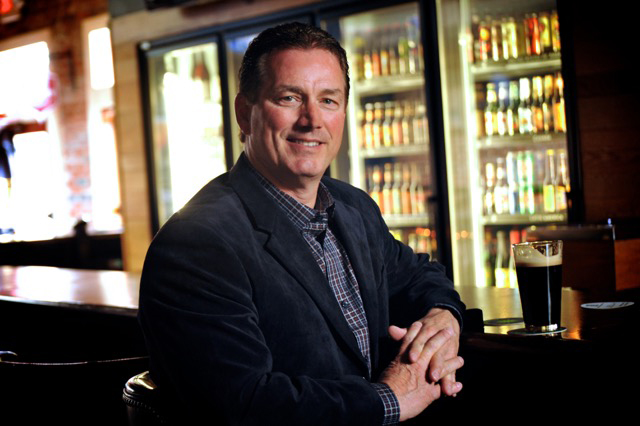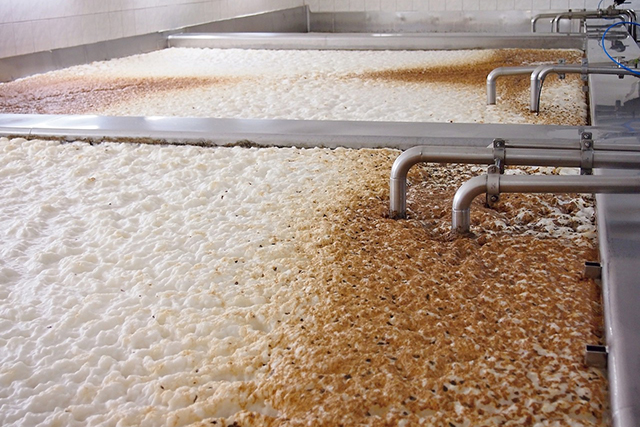
This is a part of a continuing series of Q&As with members of the brewing community from across the U.S.
Brewer Magazine will share business and personal insights from Brewmasters, Head Brewers, Brewing Managers, Sales Directors, QCQA Managers and others each weekend to help you get to know each other better in the industry and learn more to better develop your own brand.
Chris Davison, Head Brewer, Wolf’s Ridge Brewing — Columbus, Ohio
BREWER: How has your business strategy evolved to help grow and stay competitive?
DAVISON: We were founded as something more than your typical Brewpub — a true Restaurant and Brewery. Our restaurant is always ranked in the Top 3 in Columbus, creating some of the most fun and ambitious menus in Ohio. Over the years, we added a dedicated taproom to better showcase the brewery side of the business, then added a second kitchen to support a unique menu for that space. Two years ago we opened our “Hickory Room” private events space, as private events have always been an important and growing segment of our business. The Hickory Room showcases all of the business — beautiful aesthetic, it’s own world class kitchen, and 20 taps for WRB beer. Then, in January of this year we began brewing out of our new Production Facility across town to better match the ever-growing demand for our beer. Now we’re canning nearly all of our offerings and have room to grow for years to come.
BREWER: Who is your mentor in the industry and why? What have you learned from them?
DAVISON: Much of what I know on the scientific side of brewing and in recipe development was self-taught, though I must credit my bosses and peers at my first brewery job at Columbus Brewing Company for instilling in me a drive for quality, consistency, and performance. Since becoming a Head Brewer, I have to credit one of Wolf’s Ridge’s owners, Alan Szuter, for always teaching me to be a better leader. Our brewery has grown from one employee (myself in 2014) to seven full-time brewers, three full-time delivery drivers, and seven full-time sales reps. Finally, I have been immensely influenced by my time spent working in the Master Brewers Association of the Americas (MBAA). There, I’ve gained leadership and procedural guidance as well as a passion for technical brewing from Andy Tveekrem of Market Garden Brewery, and I’ve gotten a crash course in project management and inspiration in terms of empathy and passion to do good in this world from Susan Welch of Proximity Malt.
BREWER: What idea did you or your team come up with lately that has been a big benefit to how your brewery functions?
DAVISON: Due to the pandemic we’ve been squeezed and hurting like most businesses are in the country. Early on, our team not only chose to attempt, but fully committed to excelling at home delivery of beer. Being a self-distributed brewery that also had dozens of restaurant staff laid off due to having to close our doors to the public, we utilized our existing skill sets, available labor, and three delivery vans to tackle our declining sales head-on. Today, you can order beer online for next day delivery to over 50 zip codes in Central Ohio and one day a week we make trips to deliver to other large markets such as Cleveland, Cincinnati, Dayton, or Toledo. At the height of the summer home delivery made up nearly 50% of our beer sales. It literally saved the business and though retail sales have been growing and customers are more willing to buy their beer at a store these days, the home delivery segment of the business is still healthy and may never fully go away.
BREWER: If you had one business strategy that you could implement to better the brewing industry, what would it be?
DAVISON: I would love to see the brewing industry eventually be able to be an example to other industries for being truly inclusive, equitable, diverse, and just. Most consumers and breweries would consider themselves to be accepting of all people. Beer is the great equalizer, after all… isn’t it? Talk to someone who isn’t a straight white male (add in bearded, when talking brewery employees) and many of them actually don’t feel particularly welcome in taprooms or by beer marketing at all. We need to do better and I believe we will in time. This is more than who we hire (but that is a big part of it). It’s who we train and how we train them and what we train them to do. It’s how we brand our beer labels or what images go up on social media. It’s working with ALL sections of the local community and selling beer and creating awareness of your brand in places that were written off in the past. It will take time, but I know we can get the hard work done. There are millions of potential customers and craft beer fans just waiting to feel welcome to the party out there.




Be the first to comment